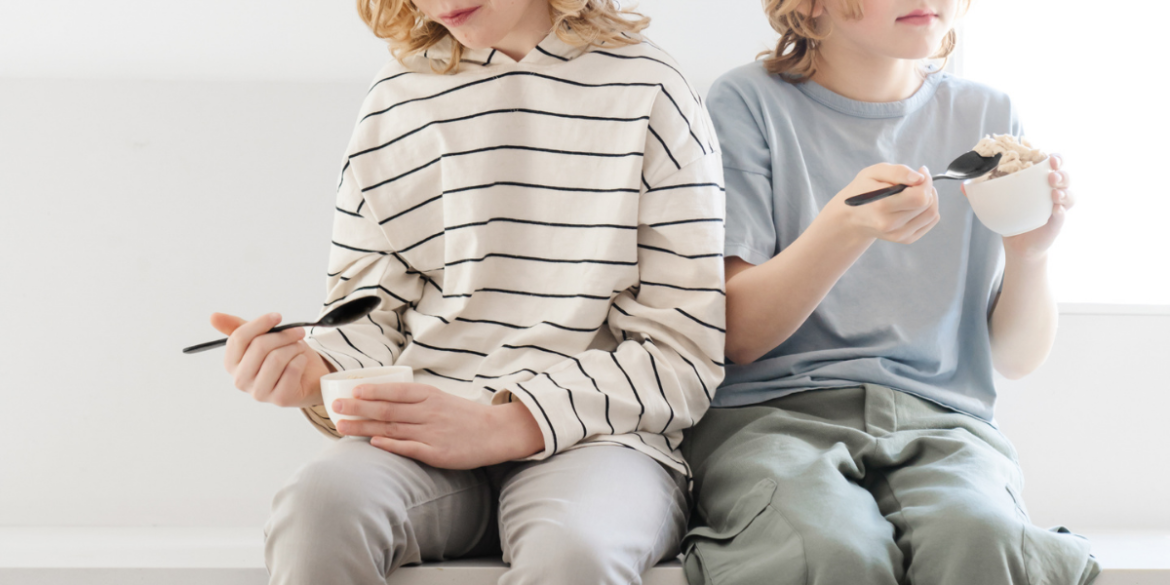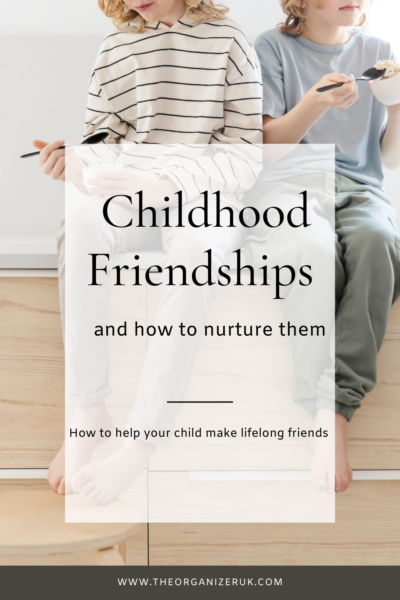Parenting
The Importance of Childhood Friendships | How To Encourage Connections
I wasn’t as lucky with my childhood friendships as most people. My dad was a civil servant and had to move to a different county every three years to get promoted. While this gave us a better lifestyle, it caused havoc in making and keeping friends. Today while I only have a handful of friends, they are all complete diamonds. I can always count on their support, and I appreciate them all. I want to help my kids cultivate healthy childhood friendships and understand the importance of friendships in childhood that will last them a lifetime. If they choose friends who turn out to be half as loyal and kind as my mates, then I’ll be happy.
In this post, I’ll talk about how I help my kids build relationships in and out of school.

Ok, so what makes me an expert in childhood friendships?
Well, I’m not, I’m just a mum, but I have two kids with very different emotional development needs. As many of you know, my youngest child has been diagnosed with ADHD and attachment disorder, which has a massive impact on his social skills, significantly impacting his ability to make friends.
My eldest daughter is the opposite, is quite the drama queen and makes making friends very easy. However, she is at a tender age where kids fall out over nothing, so it’s important to me to teach her how to maintain good relationships and to be loyal, especially with her childhood best friends. I want to help her understand the importance of having friends in school and nurturing those children and friendships.
Why are childhood friendships important?
Childhood friendships play a vital part in our child’s physical, mental, and social development. Through play, they can interact with others, which helps them:
- Learn empathy
- Read social cues
- Interact with others
- Learn how their behavior impacts others
- Develop friendship bonds
- Develop negotiation skills through social situations
- Develop physical strength by playing competitive games like football, bulldog, chase, and netball.
- Promote emotional growth and better mental health.
Do parents and children make friends in the same way?
Kids usually choose their friends, depending on what goal they want to achieve. For instance, my 9-year-old son loves football, so he tends to hang about with the kids who play football at school during the break.
My daughter is 13, and she now chooses friends who are more like her, kind and gentle rather than “popular and cool” kids. Friendships often change throughout primary school and high school,
Even 3-year-old friendships can soon come to an abrupt end!
How to maintain childhood friendships
As adults, we usually meet our friends through mutual acquaintances or work. These friendships develop over time. As we get older, we tend to filter out the friends we feel are not enhancing our lives, leaving the troublemakers and drama queens behind. Memories form, and more complex relationships grow.
- Preschool friendships
Developing friendships in early childhood is not as hard as you might think.
I was lucky with my daughter as we had family friends who had kids the same age, and they always played together. If you don’t have friends with kids the same age as yours, I would consider joining some sports clubs or activities to get your toddler mixing with other children and encourage toddler friendships. Here are some examples of the types of things I took my toddlers to:
✔️ Baby ballet
✔️ Jo Jangles music
✔️ Tumble tots
✔️ Mum and toddler groups
✔️ Gymnastics
✔️ Tennis
✔️ Drama
✔️ Swimming
✔️ Martial arts
✔️ Street dance
✔️ Rugby
✔️ Brownies
While some sports groups are an excellent way for your kids to meet other children, some are not, so don’t worry if your child doesn’t click with other kids. As adults, we don’t want to be friends with everyone, and our kids are just the same. Try your child with as many things as you can and see what sticks. It’s an excellent way to encourage preschool friendships and development. Don’t forget that all of these activities are great for your child’s mental and physical health, so all is not lost if they don’t make a best friend.
We did try out all of the activities, and my daughter is still best friends with a girl she met when she was two at baby ballet and also has a great friend she met at martial arts five years ago. She is 13 years old now, and these friendships are important as they have been cultivated outside of school, so if there is any drama in school, those friendships are never affected by it.
Preschoolers’ peer relationships are often based on who their parents invite for playdates. Wait to see who your children naturally play with before you invite a child back to your house for the first time. Children develop friendships much more slowly for the first few years at school, so don’t worry if your child doesn’t have a best friend. It will eventually develop as they get older. - School years
Knowing how to navigate friendships in school is not always easy.
✔️ Allow your kids to choose their friendships.
Your child will navigate to children who are like them. Try not to interfere with the friend your child is making unless it is harmful to them.
✔️ Don’t choose your kid’s friend based on the parents you like!
Don’t be persuaded by other parents to interfere with your child’s friendships.
This one is tricky for me as I feel I failed my daughter somewhat during her primary school years. One parent said her child had no friends and was on her own each break. Of course, I felt sorry for this child, so I encouraged my daughter to play with her.
Over the next three years, they were inseparable, and then her friend just ghosted her; there had been no falling out or arguments.
Unbeknownst to me, the child’s mum arranged numerous playdates with the “popular” kids and parents from which my child was excluded.
So now it was my child who had no friends and sat alone at lunchtime. Had I not interfered with her friendships in the first place, this would not have happened, and I was heartbroken that I’d created this situation for my daughter by trying to help another child when they needed help.
Our parents didn’t interfere with our friendships at school, so neither should we. Even 3-year-old friendships can soon come to an abrupt end!
I learned from the mistake I made with my daughter, and I didn’t get involved with my son’s friendships at all; he chooses who he knocks about with, and I’m proud of him for picking the kindest kids in the class to be friends with, he stays away from the louder, more boisterous kids. - Middle school childhood friendships
You will probably find that your child has developed some strong friendships. You will notice that they favor one or more children over the gang of kids in their class, which is how friendships form in school.
Now is a good time to start encouraging play dates. Include your child’s friends for days out or meals out, as it helps them become one of the family and lets younger kids see how important friends are. - High school friendships
Ok, here’s where it all gets a little bit complicated. For the first few weeks, your kid will cling to their best friend since childhood and all the friends they made in primary school. Suddenly, they will start to gravitate to other kids in their class and year.
I chatted with my daughter about the importance of having friends from primary school and new friends from her class.
Make it clear to your child that they shouldn’t dump their primary school friends for their new mates. Teach them how to be inclusive and introduce their old friend to their new friend to expand the friendship groups.
Just remember, you can be the juiciest peach on the tree, but not everyone likes peaches!
When childhood friendships end.
My advice would be to tell them what behaviors had made you not want to be their friend so they can choose to work on them. Honesty is always the best policy.
You could ask them why they decided to cut all ties.
If they stopped being your friend, it could be that they were never a real friend, and although this may be hard to take, it may make it easier to move on, especially for childhood friends. Just remember, you can be the juiciest peach on the tree, but not everyone likes peaches!
If you were the one who ended the relationship, there must have been a sound reason for that. It’s best to realize that people show up in our lives at the time when we need them most. When one relationship ends, it is usually to make way for a different one to begin. When it comes to choosing and keeping friends, I prefer quality over quantity!
When it comes to choosing and keeping friends, I prefer quality over quantity!
Now you’ve read all about childhood friendships, why not read my post about how to prepare your child for starting primary school or how to prepare your child for starting high school.
To read more about my experience with ADHD read this post or find more information here.


